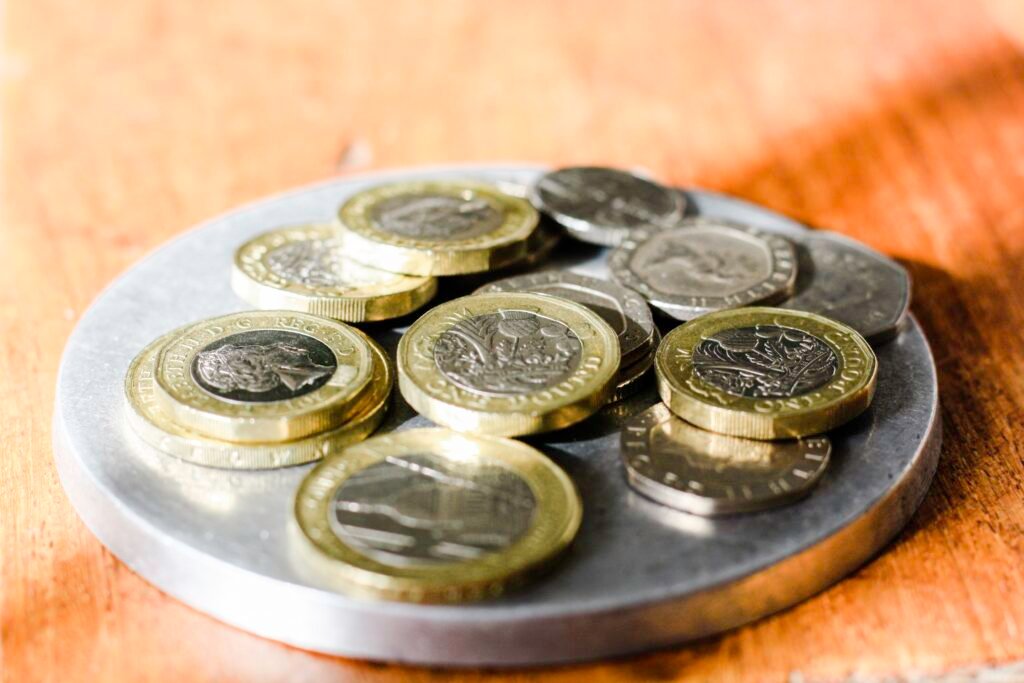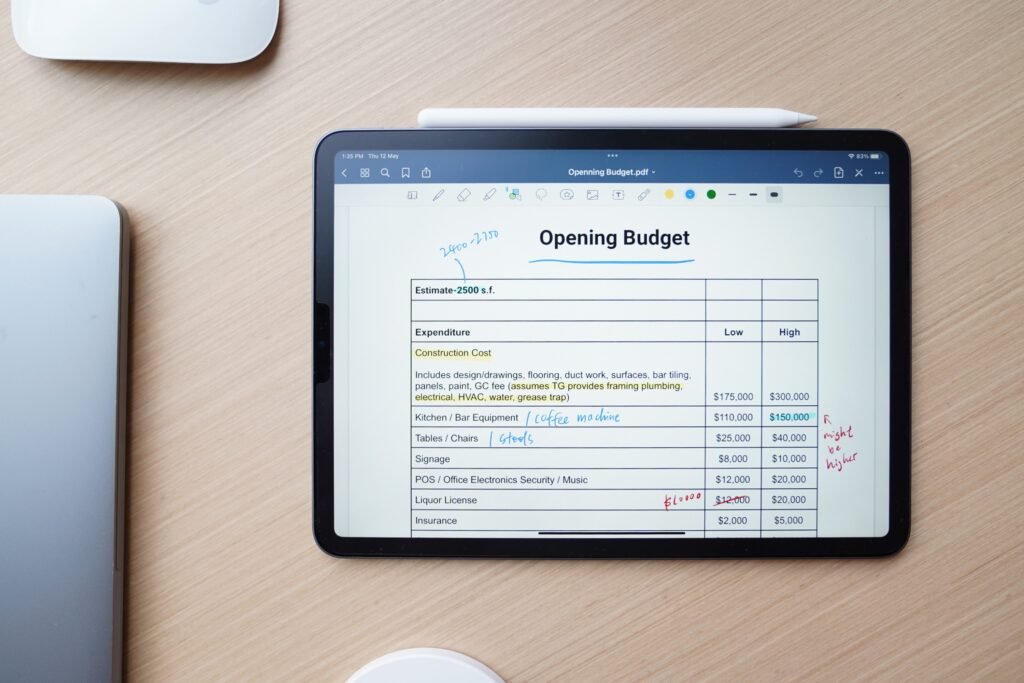In this article, titled “How to save money with a cash-only budgeting system,” the author discusses the benefits of using cash as a budgeting tool and explores the psychological factors behind why it is more effective than credit cards. The author shares their personal experience of using credit cards and accumulating debt before transitioning to a cash-only system. They explain how the “pain of paying” is felt more immediately when using cash, which helps to control spending and improve financial habits. The article also explores the use of the cash envelope budgeting system and its effectiveness in creating a more mindful approach to spending. Ultimately, the author concludes that while relying solely on cash may not be feasible in today’s cashless society, using cash as a temporary budgeting tool can provide valuable insights and lead to better financial management.

Benefits of a Cash-Only Budgeting System
A cash-only budgeting system offers several benefits that can greatly improve an individual’s financial situation. By understanding the concept of the “pain of paying,” individuals can gain a better grasp of their spending habits. Additionally, utilizing cash can aid in improved recollection of spending, allowing for better tracking and management of one’s finances. Lastly, a cash-only budgeting system encourages tangible sacrifice and can serve as a reminder of the importance of making conscious spending choices.
Understanding the ‘Pain of Paying’
The concept of the “pain of paying” is a fundamental principle in behavioral economics. It refers to the idea that individuals experience discomfort or aversion when parting with their money. This psychological phenomenon is based on loss aversion, which indicates that humans are more sensitive to losses than gains. When using cash for transactions, the pain of paying is felt immediately since physical money is physically exchanged. This immediate pain can create awareness and mindfulness around spending, leading to more responsible financial choices.
Improved Recollection of Spending
Using cash for transactions has been shown to enhance an individual’s recollection of their spending. Research conducted by ValuePenguin demonstrated that cash users were 82% better at recalling aspects related to the cost of items than credit card users. This improved recollection can be attributed to the physical nature of cash transactions. When physically handing over money, individuals are more likely to register the amount spent and remain cognizant of their overall spending habits. This awareness can be crucial in developing better money management skills.
Added Tangible Sacrifice
A cash-only budgeting system introduces an element of tangible sacrifice that is often lacking in the digital age of electronic payments. Unlike credit or debit cards, which offer a sense of detachment from the act of spending, cash forces individuals to physically hand over their money. This tangible sacrifice serves as a reminder of the importance of making conscious spending choices and encourages individuals to think twice before making unnecessary purchases. The inconvenience of having to withdraw cash from ATMs also adds another layer of tangible sacrifice, as it requires effort and can act as a deterrent to impulsive spending.
Implementing a Cash-Only Budget
Implementing a cash-only budget can be an effective way to regain control over personal finances. By utilizing the cash envelope system, setting monthly cash allotments, and organizing spending categories, individuals can create a structured budgeting system that promotes financial discipline and responsibility.
Using the Cash Envelope System
The cash envelope system is a popular method for managing expenses and sticking to a budget. It involves allocating specific amounts of cash to different spending categories and keeping the cash in separate envelopes. Each envelope represents a different spending category, such as groceries, entertainment, or transportation. By physically separating the cash and assigning it to specific categories, individuals can visually track their spending and ensure they do not exceed their allotted budget for each category.
Setting Monthly Cash Allotments
To implement a cash-only budget successfully, it is crucial to set monthly cash allotments for various expenses. This involves determining the maximum amount of cash that will be allocated to each spending category, such as groceries, dining out, transportation, and entertainment. Setting these limits helps individuals prioritize their spending and avoid overspending in any particular area. It is essential to review and adjust these allotments regularly based on changes in income, expenses, and financial goals.
Organizing Spending Categories
Organizing spending categories is an important step in a cash-only budgeting system. By identifying and categorizing regular expenses, individuals can gain a better understanding of their spending habits and patterns. Common spending categories may include housing, utilities, transportation, groceries, entertainment, and miscellaneous expenses. By organizing these categories, individuals can allocate cash accordingly, track their spending, and identify areas where adjustments may be necessary.
Overcoming Challenges
While a cash-only budgeting system offers numerous advantages, individuals may encounter challenges in an increasingly cashless society. However, with proper strategies and a proactive mindset, it is possible to overcome these obstacles and continue following a cash-only approach.
Dealing with a Cashless Society
As society becomes more dependent on digital and electronic forms of payment, relying solely on cash may present challenges. Many establishments, particularly online retailers or service providers, may not accept cash payments. In such cases, individuals may need to explore alternative payment methods, such as prepaid cards or online banking transfers, to maintain their cash-only approach. However, it is crucial to maintain strict discipline and avoid falling back into the habit of using credit or debit cards without proper budgeting.
Limited Options for Food Expenditure
When adopting a cash-only budgeting system, individuals may find their options for food expenditure limited. Many restaurants and eateries now exclusively accept card payments, which can make dining out challenging for those committed to a cash-only lifestyle. To overcome this challenge, individuals can consider alternative options, such as meal prepping, cooking at home, or finding local establishments that accept cash. By being creative and proactive, individuals can ensure that their dietary needs are met while sticking to their budgeting goals.
Opportunities for Lower Prices
While a cashless society may pose certain challenges, it also presents opportunities for individuals following a cash-only budget. Cash-only businesses often operate with lower overhead costs and do not have to pay transaction fees associated with credit card payments. As a result, they can offer lower prices to customers. By seeking out and patronizing these establishments, individuals can take advantage of these lower prices and save money in the long run.
Tips for Success
To maximize the benefits of a cash-only budgeting system and ensure long-term success, individuals should consider implementing certain strategies. These include creating an emergency fund, living within their means, and tracking and analyzing their expenses regularly.
Creating an Emergency Fund
Building an emergency fund is crucial for financial stability and acting as a safety net in times of unexpected expenses. While adhering to a cash-only budget, individuals should prioritize setting aside a portion of their income to establish an emergency fund. This fund should ideally cover three to six months’ worth of living expenses and should be easily accessible in case of emergencies. By having an emergency fund, individuals can avoid relying on credit cards when faced with unexpected costs.
Living within Your Means
One of the primary principles of a cash-only budgeting system is living within one’s means. This involves spending less than one earns and avoiding excessive debt. By practicing discipline and conscious spending, individuals can avoid the trap of living paycheck to paycheck and falling into a cycle of debt. Living within one’s means also allows individuals to allocate surplus funds towards savings and investments, thereby building long-term financial security.
Tracking and Analyzing Expenses
Regularly tracking and analyzing expenses is essential for successful budgeting. It allows individuals to gain insight into their spending patterns, identify areas of overspending or unnecessary expenses, and make necessary adjustments. Utilizing tools such as budgeting apps or expense tracking spreadsheets can simplify the process and provide a comprehensive overview of one’s financial situation. By consistently monitoring expenses, individuals can maintain control over their finances and make informed decisions regarding their spending habits.

Changing Spending Habits
Adopting a cash-only budgeting system can be an opportunity to evaluate and change one’s spending habits. By recognizing impulse spending, establishing long-term financial goals, and seeking support, individuals can develop healthier and more responsible financial behaviors.
Recognizing Impulse Spending
Impulse spending is a common trap that can derail even the most disciplined budgeters. One of the benefits of using cash is that it forces individuals to become more mindful of their spending habits. By being aware of their cash reserves and thinking twice before making impulsive purchases, individuals can break free from the cycle of impulse spending. Recognizing the triggers and emotional impulses behind impulsive purchases can help individuals develop healthier spending habits and make more conscious choices.
Establishing Long-Term Financial Goals
Setting long-term financial goals is an important step towards achieving financial stability and independence. When adopting a cash-only budgeting system, individuals should take the opportunity to establish clear and measurable goals. These goals can include paying off debts, saving for a down payment on a house, or investing for retirement. By having concrete objectives, individuals can stay motivated and focused on their financial journey. Regularly reviewing and adjusting these goals as circumstances change can ensure continued progress and success.
Seeking Support
Changing spending habits and maintaining financial discipline can be challenging. Seeking support from friends, family, or financial professionals can provide valuable guidance and encouragement. Forming accountability partnerships or joining support groups can create a sense of community and enhance motivation. Additionally, seeking professional assistance from financial advisors or credit counselors can offer expert advice on budgeting, debt management, and long-term financial planning.
Maintaining Discipline
Maintaining discipline is vital for the success of a cash-only budgeting system. By avoiding temptations, staying focused on saving goals, and rewarding oneself, individuals can reinforce positive financial habits and ensure long-term financial well-being.
Avoiding Temptations
In a consumer-driven society, temptations to overspend and indulge are abundant. When following a cash-only budget, individuals must be mindful of these temptations and avoid unnecessary expenditures. This may involve resisting the urge to make impulsive purchases, unsubscribing from marketing emails or notifications, and refraining from window shopping or unnecessary browsing. By practicing self-control and reminding oneself of the long-term benefits of sticking to a budget, individuals can overcome temptations and maintain financial discipline.
Staying Focused on Savings
Saving money is a cornerstone of financial security and should be a priority for individuals following a cash-only budget. By staying focused on savings goals, individuals can reinforce the habit of setting aside funds for future needs and emergencies. This may involve regularly transferring a portion of one’s income into a designated savings account, automating savings contributions, or exploring investment opportunities. By consistently saving and monitoring progress, individuals can build a strong financial foundation and achieve their long-term goals.
Rewarding Yourself
While maintaining financial discipline is essential, it is also important to reward oneself along the way. By setting achievable milestones and indulging in occasional treats or experiences, individuals can stay motivated and avoid feeling deprived. Rewards can be as simple as a small splurge within a predetermined budget or a planned vacation to celebrate reaching a savings milestone. By incorporating rewards into the budgeting system, individuals can create a balance between financial responsibility and enjoying the present moment.

Building Financial Security
A cash-only budgeting system can serve as a stepping stone towards building long-term financial security. By paying off debts, investing in the future, and building an emergency fund, individuals can establish a solid foundation for financial stability and independence.
Paying Off Debts
High levels of debt can be a significant obstacle to financial well-being. When adhering to a cash-only budget, individuals should prioritize paying off their debts, especially those with high-interest rates. By allocating a portion of their income towards debt repayment and avoiding incurring new debt, individuals can gradually eliminate their financial burdens. Paying off debts not only improves one’s credit score but also increases disposable income, allowing for greater financial freedom in the long run.
Investing in the Future
Investing is a powerful tool for growing wealth and securing one’s financial future. When following a cash-only budgeting system, individuals should consider allocating a portion of their savings towards investments. This may involve exploring options such as stocks, bonds, mutual funds, or real estate. By working with a financial advisor or conducting thorough research, individuals can make informed investment decisions that align with their risk tolerance and long-term financial goals.
Building an Emergency Fund
Having a robust emergency fund is essential for financial security and peace of mind. A cash-only budgeting system provides individuals with an opportunity to prioritize building an emergency fund. By setting aside a portion of their income on a regular basis, individuals can accumulate savings that are easily accessible in case of unexpected expenses or emergencies. An emergency fund serves as a financial safety net, allowing individuals to cover essential expenses without resorting to credit or taking on high-interest debt.
Financial Freedom
By embracing a cash-only lifestyle and adopting responsible financial behaviors, individuals can achieve financial independence and build a secure future. The path to financial freedom involves achieving financial independence, building wealth, and creating a sustainable lifestyle.
Achieving Financial Independence
Financial independence refers to the ability to sustain one’s desired lifestyle without being reliant on a regular paycheck. When following a cash-only budgeting system, individuals take control of their finances and make conscious choices that enhance their financial well-being. By avoiding excessive debt, saving and investing wisely, and living within one’s means, individuals can achieve financial independence and enjoy the freedom of not being burdened by financial constraints.
Building Wealth
Building wealth is a key aspect of financial freedom. By following a cash-only budgeting system and practicing responsible financial habits, individuals can accumulate wealth over time. This may involve consistently saving a portion of their income, investing wisely, and building a diverse portfolio. The accumulation of wealth provides individuals with greater financial security, increased opportunities, and the ability to pursue their long-term aspirations.
Creating a Sustainable Lifestyle
A cash-only budgeting system encourages individuals to cultivate a sustainable lifestyle by making conscious spending choices and living within their means. By avoiding excessive consumption, individuals can reduce their environmental impact and contribute to a more sustainable future. Practicing responsible financial behaviors, such as minimizing waste, adopting eco-friendly habits, and prioritizing experiences over material possessions, can lead to a more fulfilling and sustainable lifestyle.
Long-Term Benefits
Adopting a cash-only budgeting system has numerous long-term benefits that contribute to improved financial well-being and overall quality of life. These benefits include reduced financial stress, improved financial health, and enhanced money management skills.
Reduced Financial Stress
Financial stress is a common source of anxiety and can significantly impact an individual’s overall well-being. By implementing a cash-only budgeting system, individuals gain control over their finances and reduce financial stress. The tangible nature of cash transactions and the awareness it brings to spending help individuals make informed choices and avoid the burden of excessive debt or financial instability.
Improved Financial Health
Following a cash-only budgeting system improves an individual’s financial health by promoting responsible financial behaviors. By tracking expenses, adhering to a budget, and living within one’s means, individuals can optimize their financial resources and make progress towards their financial goals. Improved financial health allows individuals to achieve milestones such as debt repayment, retirement planning, or homeownership, enhancing their overall financial well-being.
Enhanced Money Management Skills
Adopting a cash-only budgeting system promotes the development of essential money management skills. By tracking and analyzing expenses, individuals gain a better understanding of their financial habits and can identify areas for improvement. This awareness enables individuals to make more informed financial decisions, allocate resources effectively, and prioritize long-term goals. Over time, the practice of managing a cash-only budget hones critical money management skills that can be applied to various areas of life.
Conclusion
Embracing a cash-only lifestyle can yield numerous benefits, such as improved financial awareness, reduced overspending, and increased financial discipline. By understanding the concept of the “pain of paying” and utilizing cash envelopes, individuals can enhance their recollection of spending and make conscious spending choices. Overcoming the challenges of a cashless society, adopting strategies for success, and changing spending habits can lead to long-term financial security and freedom. By building wealth, achieving financial independence, and cultivating a sustainable lifestyle, individuals can enjoy the benefits of reduced financial stress, improved financial health, and enhanced money management skills. Ultimately, a cash-only budgeting system empowers individuals to take control of their finances and create a brighter financial future.











